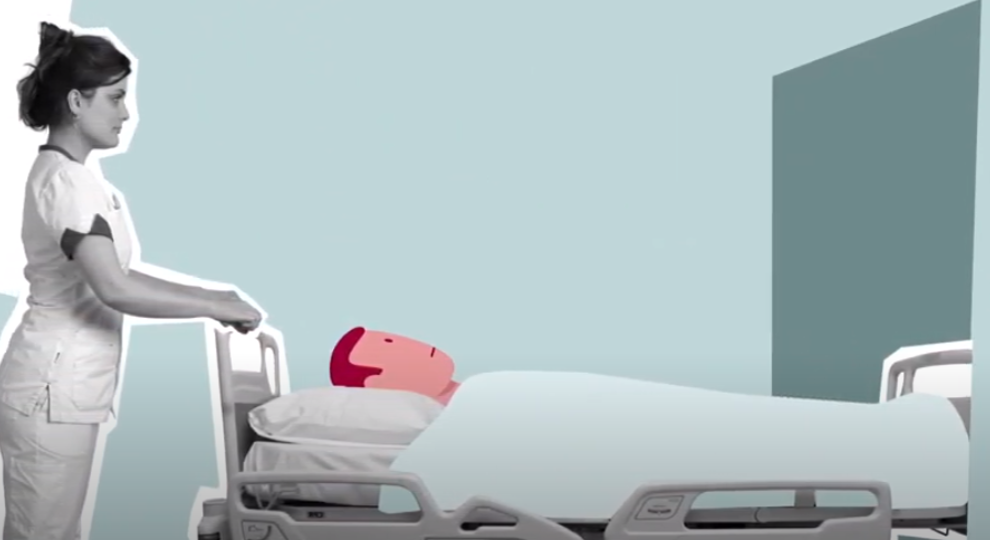Surgery for salivary gland cancer
Cancer in the salivary glands is rare and can be treated with surgery. We remove the tumor, usually together with a part of the salivary gland. If we have found metastases in the lymph nodes in the neck, we will remove these as well. Most people will be treated with radiation after surgery.
More information
Surgery for salivary gland cancer - what to expect?
You will be under general anesthesia during this procedure. Your tumor will be removed
We usually will need to remove part of your salivary gland as well, or the lymph nodes in your neck.
Efficacy
Salivary gland cancer can be cured with surgery although there will be a risk of recurrence.
This is why we will invite you to come in for regular screenings for at least 5 years. First, you will have to come in every couple of months, and then the frequency will decrease.
Preoperative screening
Before your surgery, you will be invited to meet with your anesthesiologist at the outpatient clinic for a consultation and a brief examination to assess your overall shape and any potential particularities we will need to keep in mind. The consultation assistant will measure your heart rate and blood pressure and will inquire about your height and weight. If needed, we can take those measurements during the appointment.
This preoperative screening will take approximately 20 minutes and will form the base of your anesthesia. Your anesthesiologist will listen to your lungs and heart and inspect your mouth and throat in preparation of the breathing tube that will be placed during surgery. Your anesthesiologist will also ask you:
Before your surgery, you will be invited to meet with your anesthesiologist at the outpatient clinic for a consultation and a brief examination to assess your overall shape and any potential particularities we will need to keep in mind. The consultation assistant will measure your heart rate and blood pressure and will inquire about your height and weight. If needed, we can take those measurements during the appointment.
This preoperative screening will take approximately 20 minutes and will form the base of your anesthesia. Your anesthesiologist will listen to your lungs and heart and inspect your mouth and throat in preparation of the breathing tube that will be placed during surgery. Your anesthesiologist will also ask you:
- whether you have been under anesthesia before
- whether you have any other conditions
- whether you have taken cancer medicine before
- whether you have had radiation treatment before
- whether you have any allergies
- whether you smoke
- whether you drink alcohol
- what kind of medication you take
Please inform your anesthesiologist of the type of medication and dose you take, and how often you take it. Your physician may want to run more tests before your surgery, such as: electrocardiogram (ECG), lung x-rays, a lung function test, or a blood test.
General or local anesthesia
Before your surgery you will be given general anesthesia, local anesthesia, or a combination of the two. General anesthesia means that you will be completely unconscious during surgery, whereas local anesthesia means that a part of your body will be numb and motionless.
General anesthesia
General anesthesia completely sedates your body. You will be given a cocktail of sleeping medicine, pain killers, and sometimes a muscle relaxant through IV. You will be unconscious within 30 seconds. You will be ventilated during the entire process.
If you are having major surgery, we will place a respiration tube in your throat. For smaller surgeries, a small cap in the back of the throat will suffice. We will closely monitor your heart rate, blood pressure, breathing, and temperature through our monitoring devices.
Local anesthesia
If you are given local anesthesia, you will be conscious during your surgery. Local anesthetics are usually administered through an epidural in the spine, and will temporarily numb all body parts underneath. We may place a tube to give you IV pain medication during and after surgery.
Your anesthesiologist will keep a close eye on your blood pressure, heart rate, breathing, and temperature in order to adapt the anesthesia if needed.
Most people undergoing major surgery will be given a mixture of general and local anesthetics.
Side effects and complications
Removing the lymph nodes in your neck may cause issues in the shoulders.
Salivary glands are near the facial nerve and may even grow around or inside the nerve. By dissecting the tumor, the nerve may be temporarily or permanently weakened or even paralyzed. This is called facial paralysis. We will attempt to spare the nerve or reconstruct it.
You may feel numb around your ear. Treatment with surgery or radiation may cause dryness of the mouth.
After surgery
After surgery, you will receive treatment by an oral hygienist. Please take plenty of rest. It may take several weeks or months before you can continue with your day-to-day activities.

 nl
nl
 Nederlands (Nederland)
Nederlands (Nederland)
 English (United States)
English (United States)